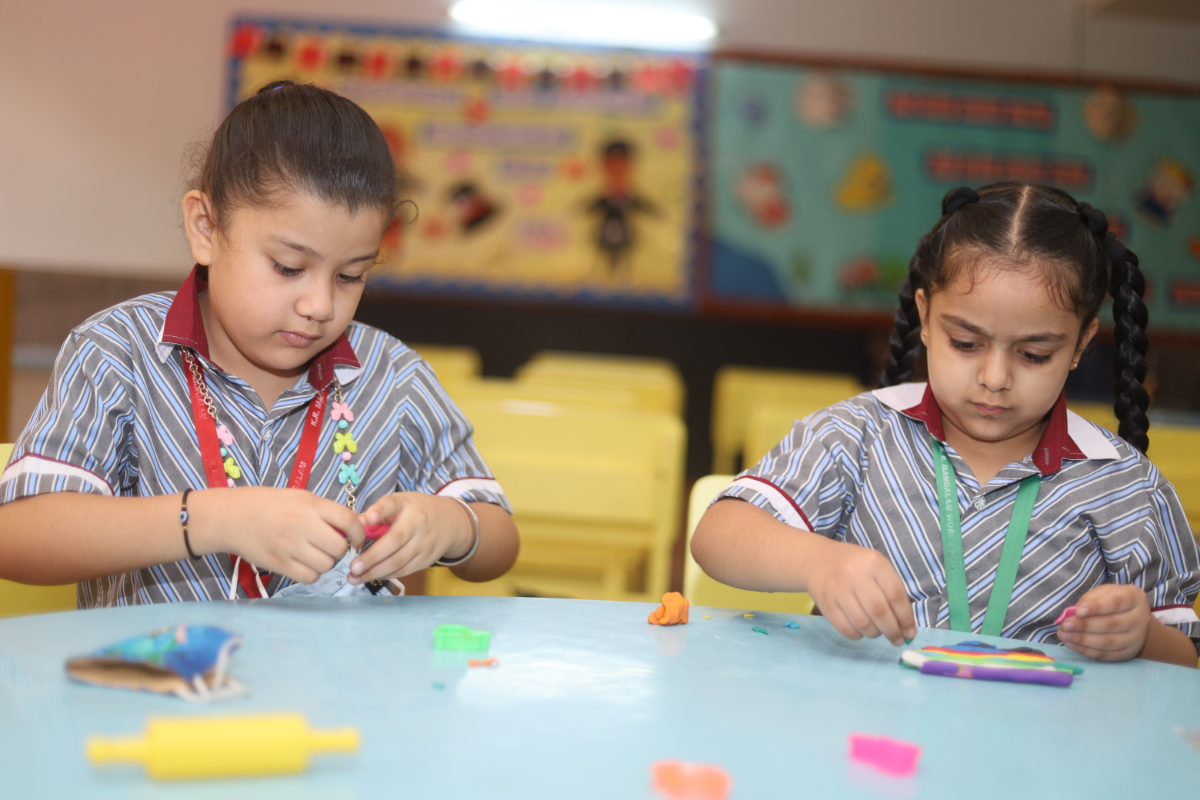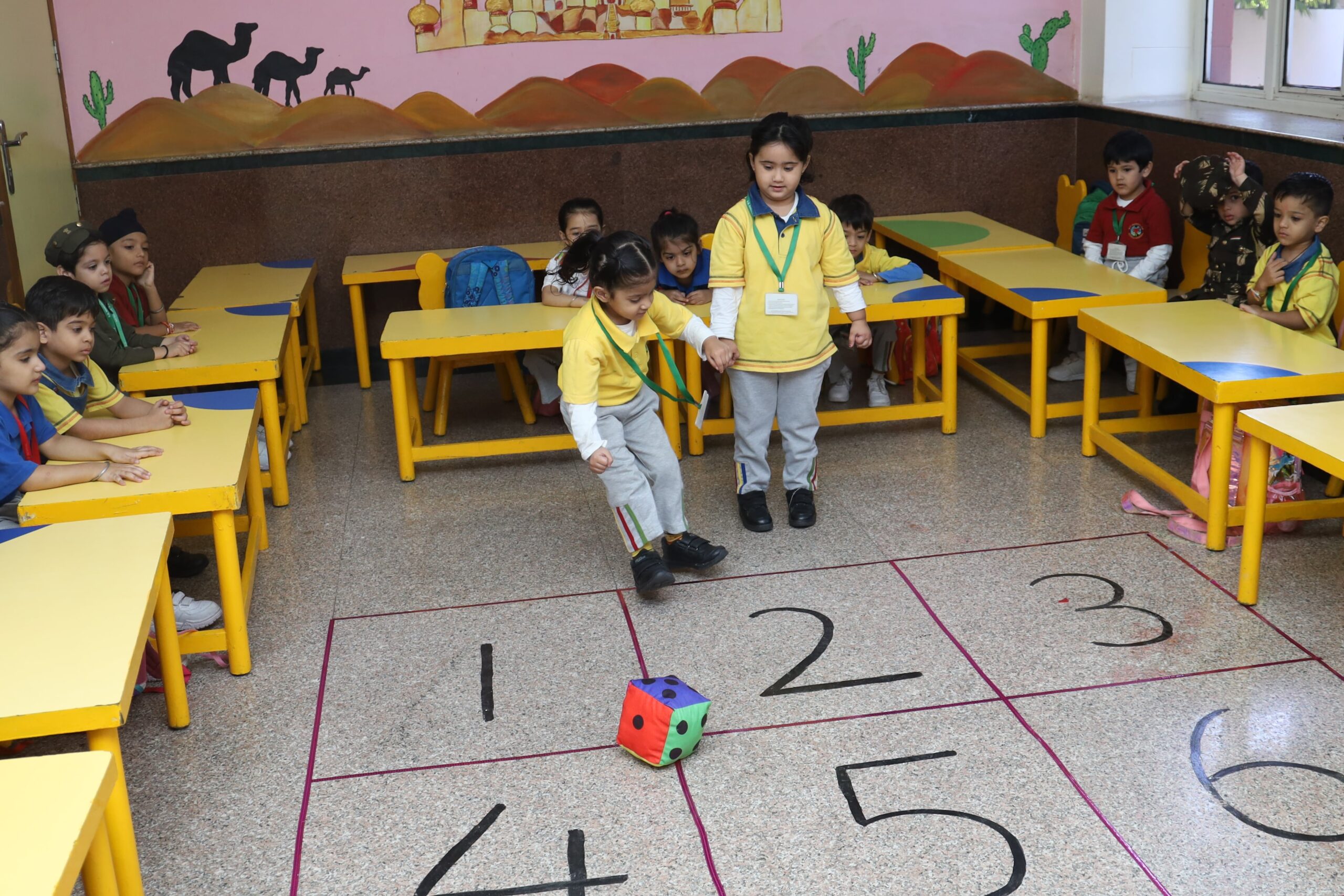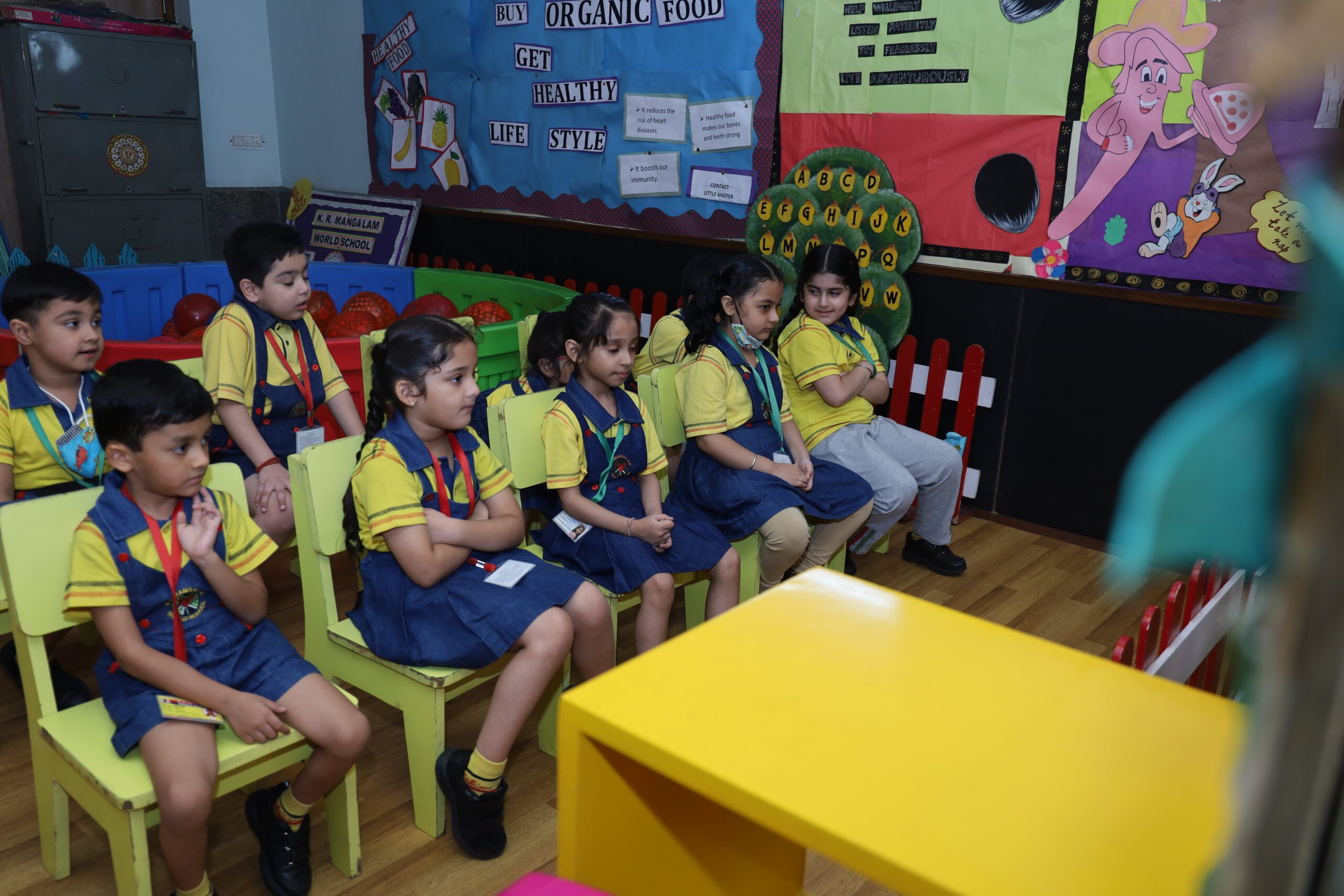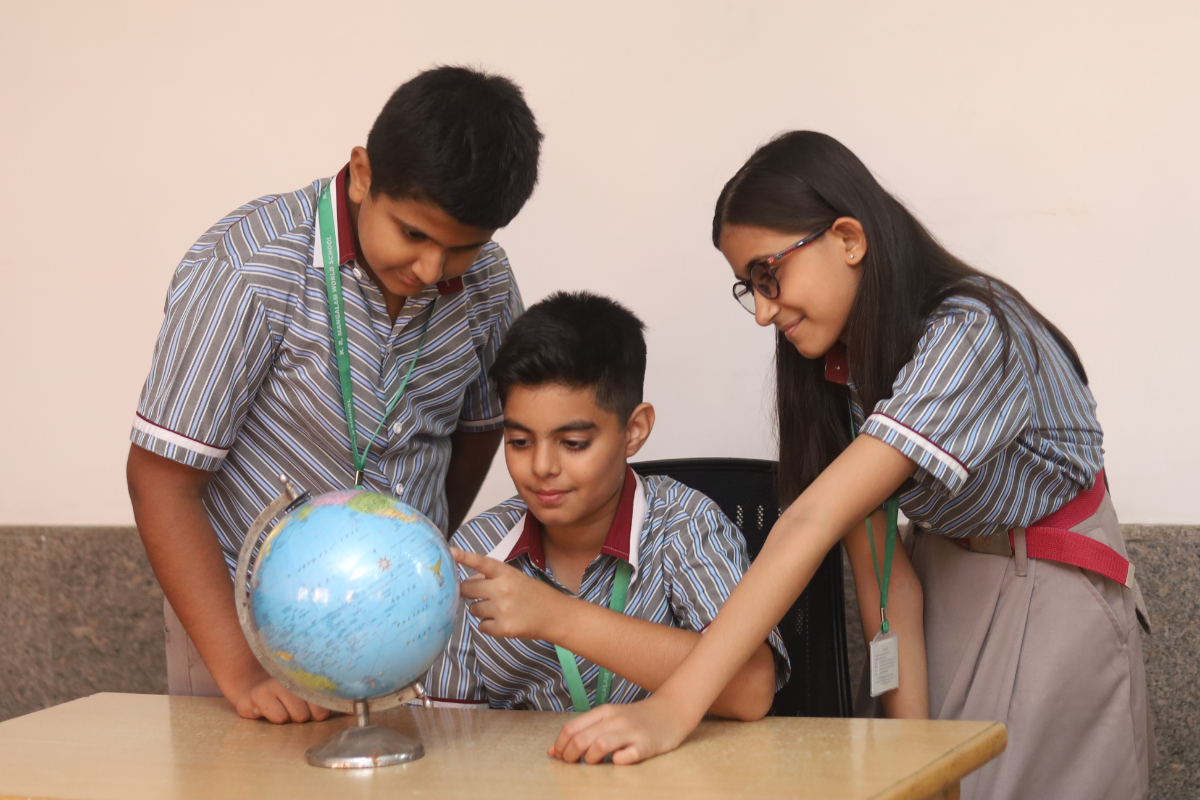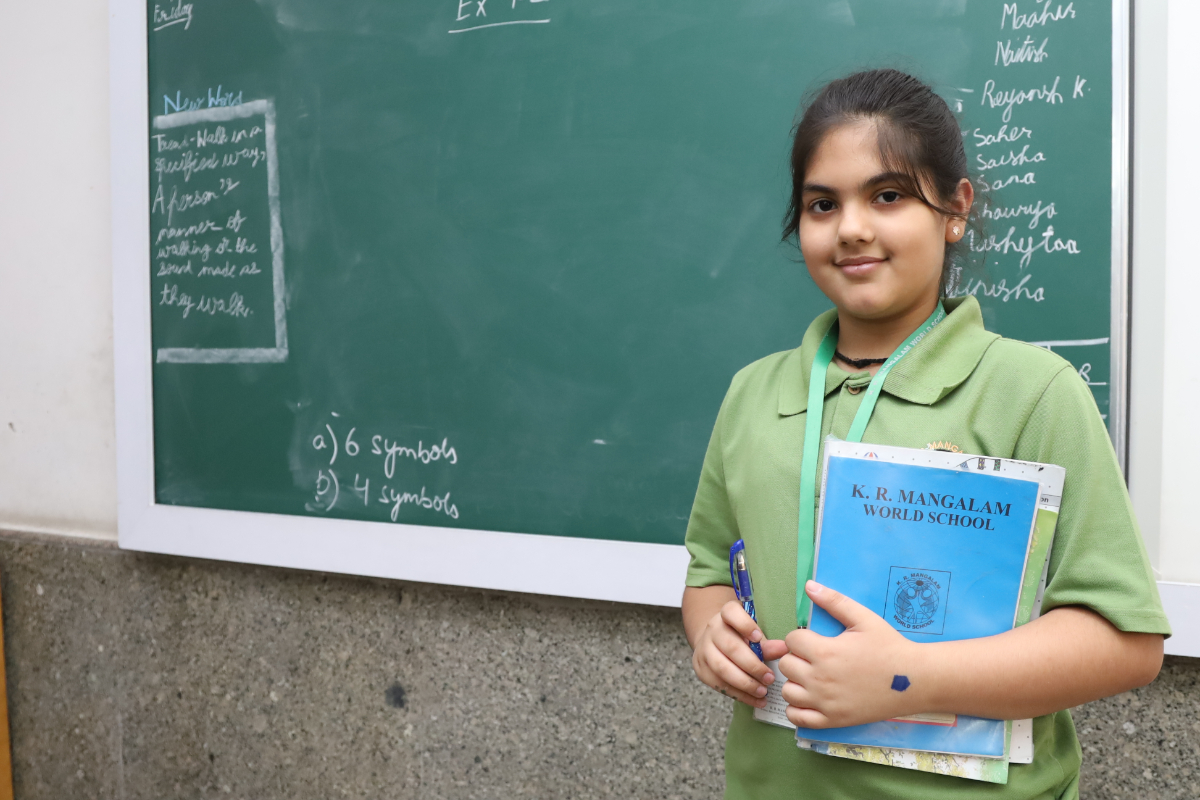Primary “Dedication, Determination, Discipline-when the three come together, the result is Excellence.”
This thought is the driving force as students of KRM, Vikaspuri (Primary) move in sync with the vision-ENGAGE. LEARN. INNOVATE. The curriculum at Primary level is centered around igniting the desire to “Explore to know more.” and every step of the way teachers are engaged in honing their skills, adding to their existing knowledge, enriching the young minds in manifold ways.
The school follows a 5-day week schedule with school timings from 7:50 a.m. to 2:15 p.m.
The curriculum is a balance of academics intertwined with co-curricular activities –the aim is holistic development of each student.
“Develop a passion for learning. If you do, you will never cease to grow.”
We foster a positive spirit and believe in partnership amongst students, parents, teachers and support staff striving to create a milieu that sustains excellence. The school curriculum is woven around the guidelines as laid out in NEP 2020.The flexibility in the framework of the curriculum provides the teacher the freedom to tend to the unique needs and areas of interest of children. Students’ engagement at various levels helps them discover and tap their potential-thereby preparing them for the challenging times ahead.
At KRM, the curriculum is woven around various learning techniques: –
- 1 Experiential Learning
- 2 Project-based Learning
- 3 STEAM (Science Technology, Engineering, Art, and Mathematics Learning)
- 4 Honing Multiple Intelligences
- 5 PSPE (Personal Social and Physical Education)
- 6 Activity based learning
Students at the Primary level exhibit a keen eye, have their own perspectives –all this gives them a unique identity. Teachers are engaged in inculcating amongst the students a culture of learning by questioning concepts, lessons, and methodologies in a bid to acquire cognitive knowledge of all subjects being taught. Emerging and interactive technologies are combined with experiential learning so as to simplify concepts and optimize the retention power in students. Such an evolving enabling environment provides great growth opportunities for learners to accumulate knowledge, wisdom on a global front.
![]() The mind is not a vessel to be filled but a fire to be ignited.
The mind is not a vessel to be filled but a fire to be ignited.
The core subjects offered are:
- English
- Hindi
- Mathematics
- Science
- Social Science
- Computer Science
- General Knowledge
- EVS (UPTO GRADE II)
In grade V, students are introduced to a third language. They may choose any of the following languages: –
- German
- French
- Sanskrit
- 1 Well-equipped library
- 2 Dedicated School App
- 3 Info tech labs
- 4 Recycling Unit
- 5 Well Equipped Art Room with Potter’s wheel
- 6 SUPW Clubs
- 7 AI based learning- Robotics
- 8 Hands-on learning which is equipped with project based, research-based learning.
- 9 Intra-Class, Inter-House, Inter-school competitions conducted throughout the year.
- 10 Annual Presentation
- 11 Music and dance (Indian and Western)
- 12 Indoor and Outdoor games- Virtual Golf, Shooting, Chess, Table- Tennis, Lawn Tennis, Football, Skating, Cricket, Basketball
- 13 Fitness and wellbeing activities-Yoga, gymnastics and Taekwondo
- 14 Scouts and Guides (Cubs and Bulbuls)
- 15 Visits, Day-outs, excursions
- 16 Parent engagement through workshops, seminars, motivational talks, storytelling
- 17 International Exchange Programmes.
- 18. Teacher training programmes to keep them abreast with the latest teaching methodologies.

